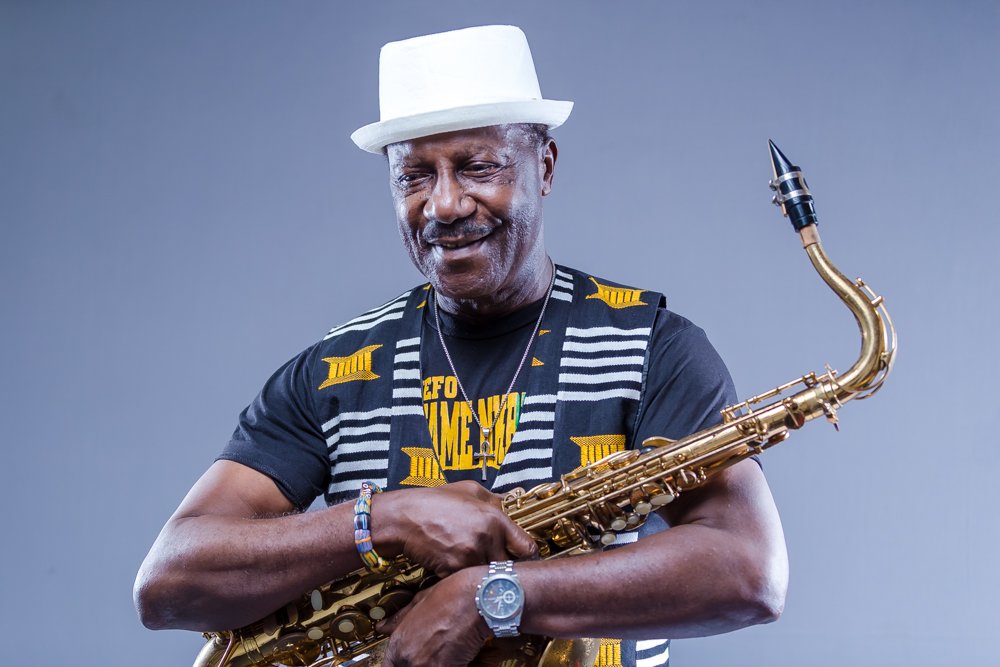GYEDU-BLAY AMBOLLEY
GYEDU-BLAY AMBOLLEY
Sunday, August 18
Gyedu-Blay Ambolley at the Drake
7PM (doors 6PM)
AN AFRican funk legend from ghana
Gyedu-Blay Ambolley is a musical luminary hailing from Ghana, West Africa, with a staggering 29 albums under his belt. It’s hard to understate his importance in Afrofunk, particularly as a cornerstone in Ghana’s musical history. His debut album “Simigwa”, produced and composed with the legendary Ebo Taylor, provided the country with a musical outline of what an African James Brown might have sounded like.
His unique fusion of Ghanaian highlife with funk, soul, disco and rap is a sound all it’s own — its glorious provenance owing to the arrival of American vinyl on West African shores.
Ambolley comes to the US for his first legit tour hosted by JAZZ IS DEAD, the music label and tour series founded by Ali Shaheed Muhammed and Adrian Younge. He brings his eight-piece band from Ghana to perform the iconic 1975 album Simigwa in its entirety.

THE SIMIGWA-DO MAN
Known affectionately as the "Simigwa Do Man,” Ambolley’s musical journey began in the vibrant port city of Sekondi-Takoradi, in the Western Region of Ghana. His early fascination with music blossomed into a lifelong passion. From mastering his father’s flute at the tender age of eight, to honing his guitar skills under the mentorship of “Uncle Bonku”, Sammy Lartey and Ebo Taylor, Ambolley’s musical odyssey has been nothing short of extraordinary.
Coming of age amidst the zenith of Ghana’s highlife era, Ambolley emerged as a pivotal figure in its evolution, lending his talents to esteemed bands such as Houghas Extraordinaires, Meridians Of Tema and Ghana Broadcasting Band. It was during this time that he caught the attention of his compatriot and friend, Ebo Taylor, who recruited Ambolley to be a member of the Uhuru Dance Band. This all lead to a transformative journey to Nigeria in 1973, where they shared the stage with the legendary Fela Kuti at his renowned Shrine venue.
Ambolley exploded on the scene that year when he released Simigwa with the Uhuru Dance Band. A main inspiration for this album was the work of the mighty Mr. James Brown, something that is evident from the rhythm section, horns, vocal stabs and percussion breaks throughout the record.





